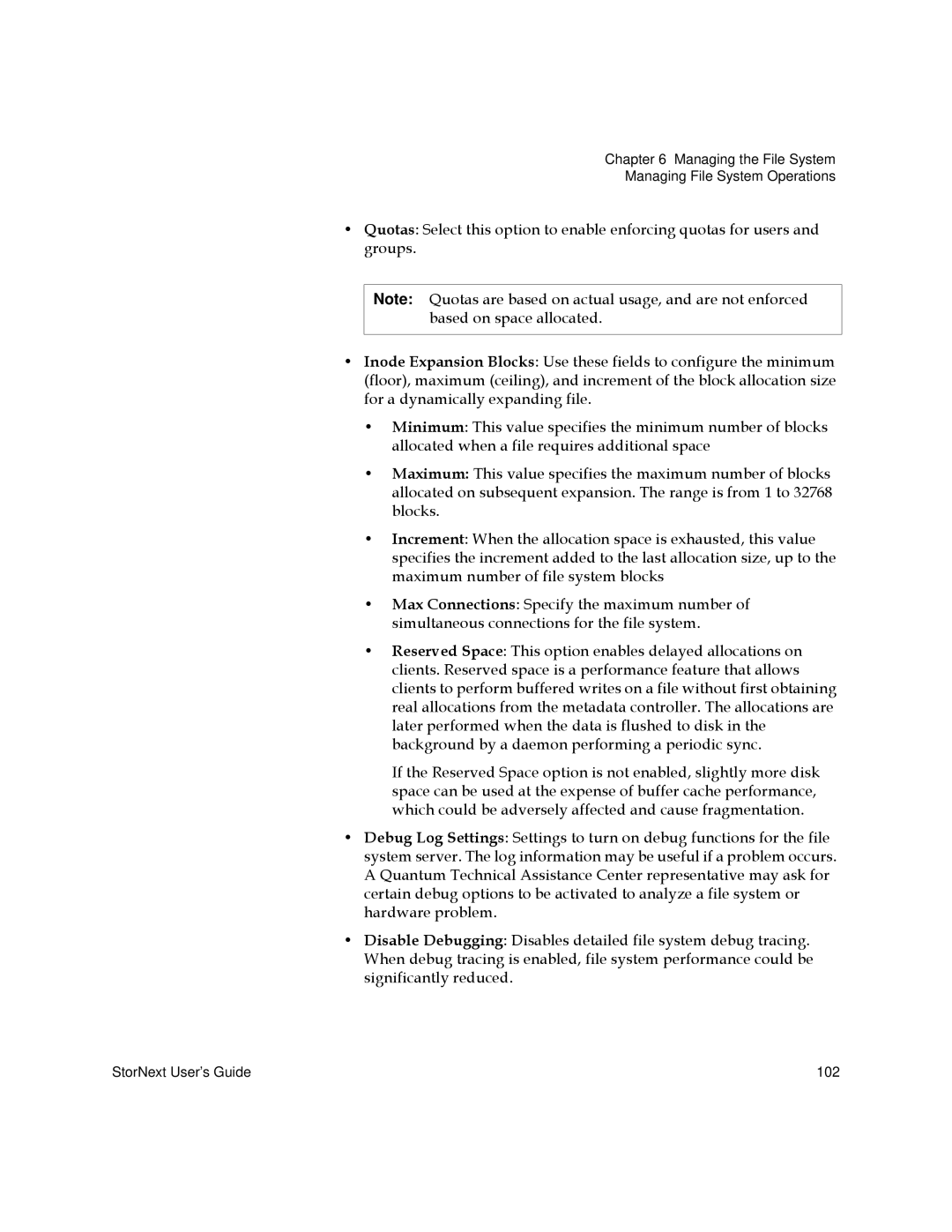Chapter 6 Managing the File System
Managing File System Operations
•Quotas: Select this option to enable enforcing quotas for users and groups.
Note: Quotas are based on actual usage, and are not enforced based on space allocated.
•Inode Expansion Blocks: Use these fields to configure the minimum (floor), maximum (ceiling), and increment of the block allocation size for a dynamically expanding file.
•Minimum: This value specifies the minimum number of blocks allocated when a file requires additional space
•Maximum: This value specifies the maximum number of blocks allocated on subsequent expansion. The range is from 1 to 32768 blocks.
•Increment: When the allocation space is exhausted, this value specifies the increment added to the last allocation size, up to the maximum number of file system blocks
•Max Connections: Specify the maximum number of simultaneous connections for the file system.
•Reserved Space: This option enables delayed allocations on clients. Reserved space is a performance feature that allows clients to perform buffered writes on a file without first obtaining real allocations from the metadata controller. The allocations are later performed when the data is flushed to disk in the background by a daemon performing a periodic sync.
If the Reserved Space option is not enabled, slightly more disk space can be used at the expense of buffer cache performance, which could be adversely affected and cause fragmentation.
•Debug Log Settings: Settings to turn on debug functions for the file system server. The log information may be useful if a problem occurs. A Quantum Technical Assistance Center representative may ask for certain debug options to be activated to analyze a file system or hardware problem.
•Disable Debugging: Disables detailed file system debug tracing. When debug tracing is enabled, file system performance could be significantly reduced.
StorNext User’s Guide | 102 |
